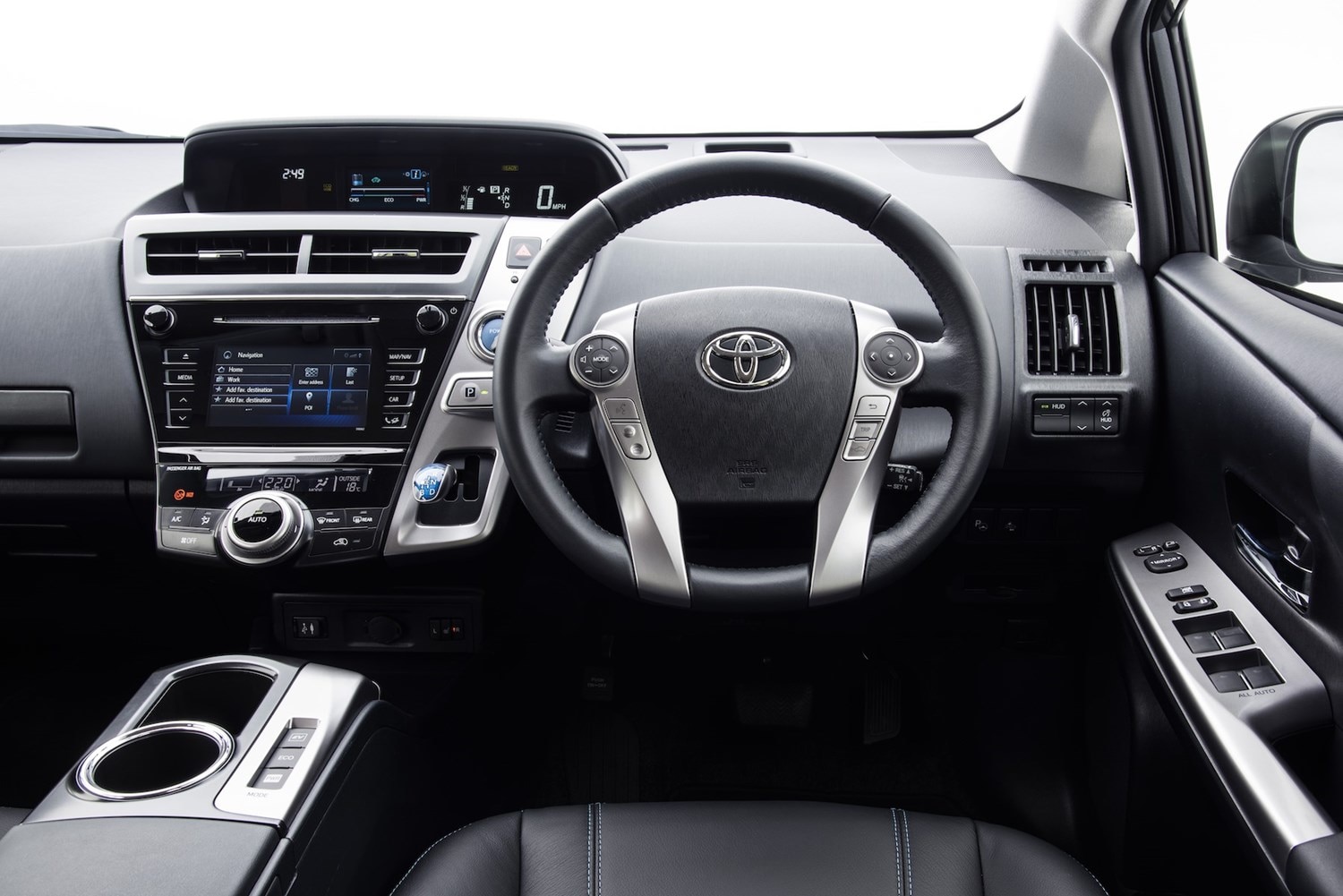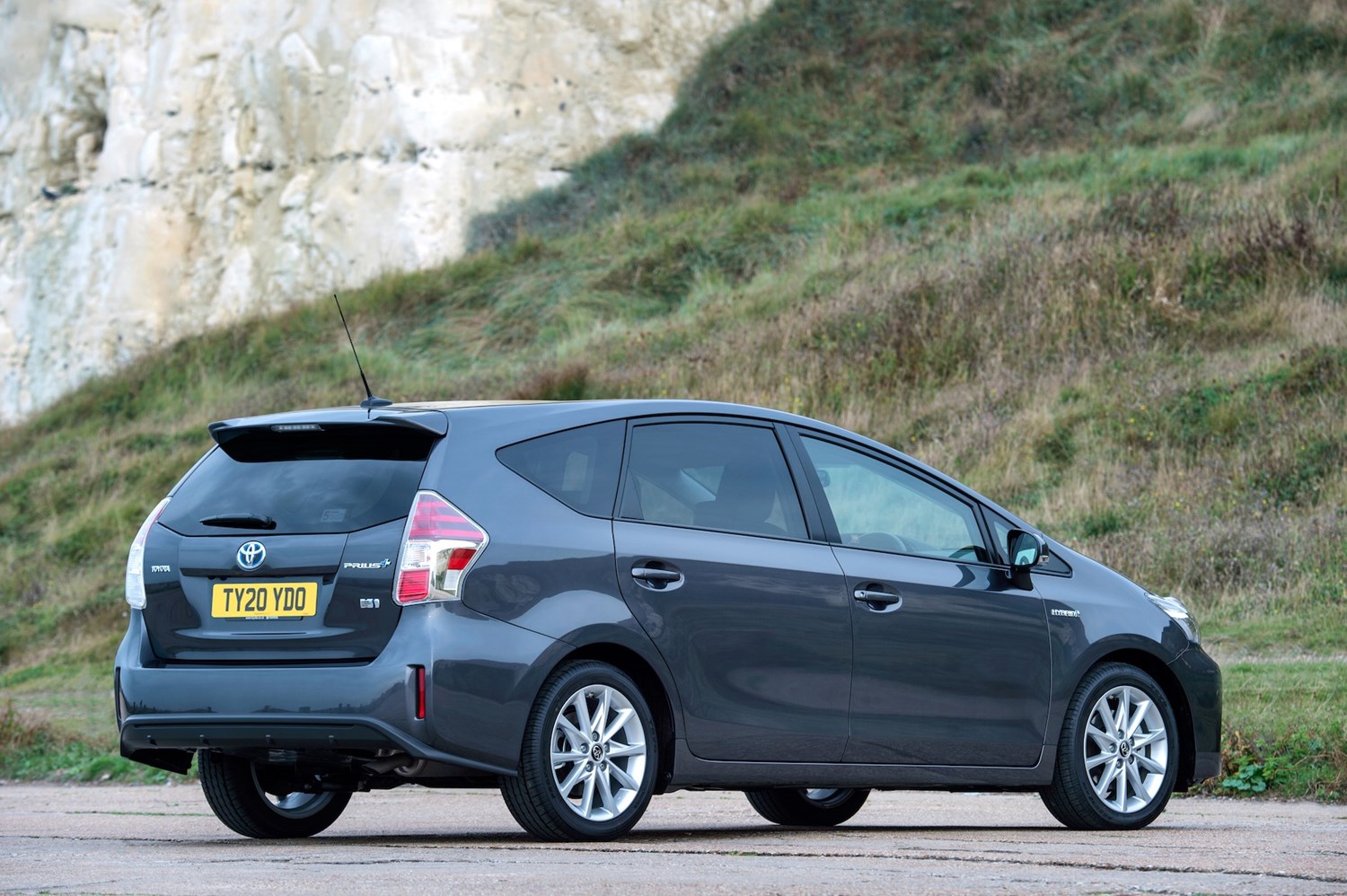Latest model
While Toyota may have launched a new fourth-generation in Prius, the Plus model continues to be based on the previous third-generation model – a car that debuted all the way back in 2009. That’s reflected in its somewhat outdated-looking design, though you still get an impressive amount of tech as standard.
So changes to the Prius+ haven’t been huge, but it’s a model that’s been revised throughout its lifetime, bringing additions such as a smoother gearbox and touchscreen system.
The most recent update in 2018 brought a reduced trim level range along with the firm’s Safety Sense system, including adaptive cruise control, road sign assist and high beam assist.
But with no replacement for the Prius+ looking likely, you should act quickly if you want a new version of this hybrid people carrier.
Value for money
Prices for the Prius+ start from £27,900, which is quite a lot of money for what is essentially an eight-year-old MPV. Though you do get a generous amount of standard equipment –particularly when it comes to safety kit – it’s not what you’d call great value, especially in top-spec Excel trim.
It does hold its value quite well, though, with even the oldest high-mileage examples costing above £7,000, while a 2012 car with around 50,000 miles on the clock would still set you back £9,000.
However, great savings are available on nearly-new models, with up to £6,000 available off six-month-old examples. Just be aware that quite a few Prius+ models have been imported over from Japan, which might make them look like they’ve been registered later than they actually were.
Looks and image
Given the Prius+ is based on the standard Prius that was discontinued more than four years ago, it’s not surprising that this MPV isn’t at the forefront of cutting-edge design. The exterior look, while entirely inoffensive, is quite bland and unsurprisingly looks a bit outdated now. That said, high-spec Excel versions are the ones to go for if you want something more stylish – these adding larger alloy wheels and privacy glass.
The interior hasn’t aged quite as badly as you might think, though, as all versions get an LCD display in the centre of a dash, along with a touchscreen, though it lacks modern features like Apple CarPlay and Android Auto. It’s also not a particularly high-quality interior, though feels durable and dependable, which is important for a car aimed at families and the taxi market.
The Prius+ also prioritises ease of driving above all else behind the wheel, with a comfortable ride both around town and even on motorways. It’s not much fun to drive, but that’s likely to be of little importance to anyone looking at owning one.





